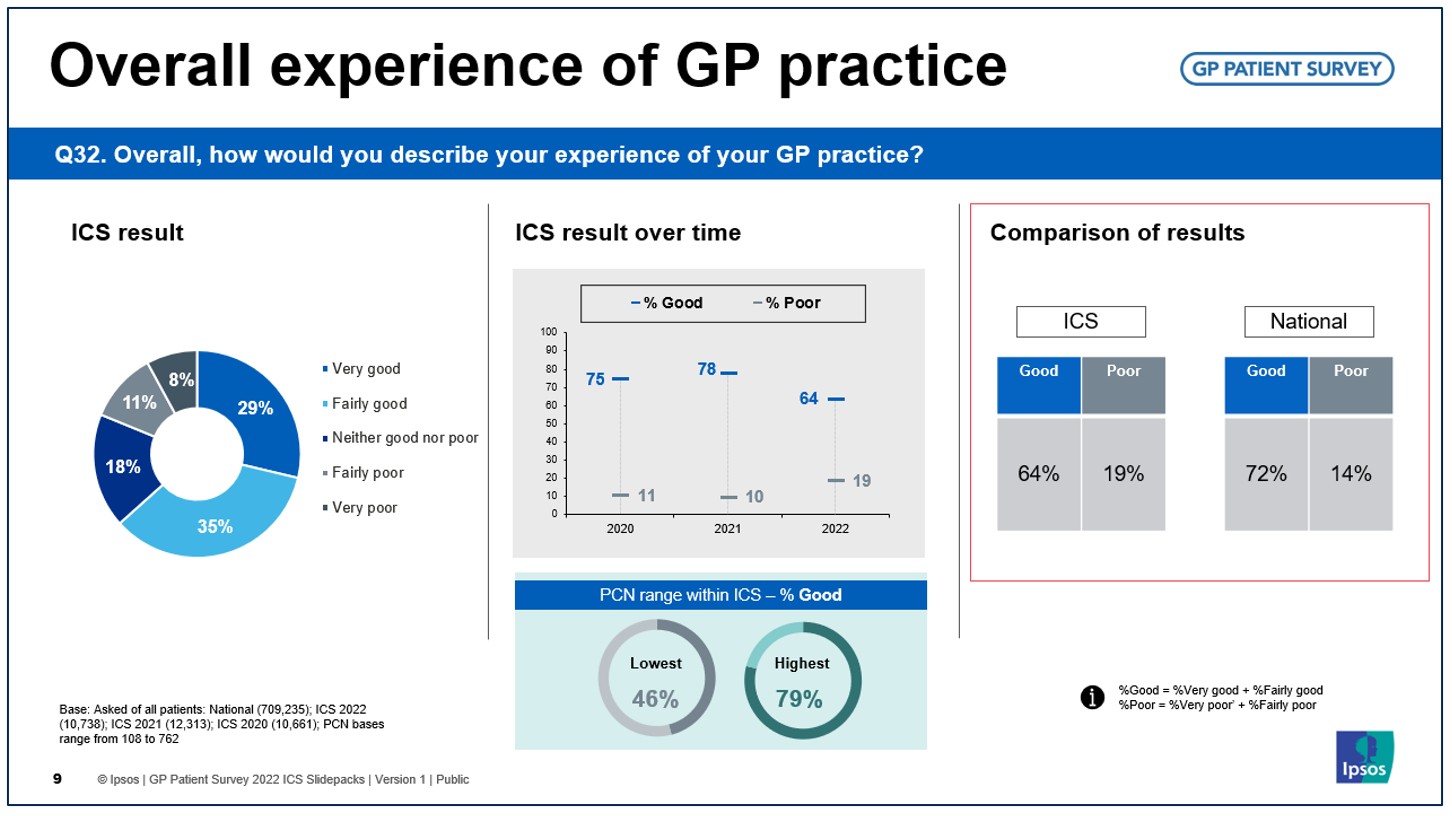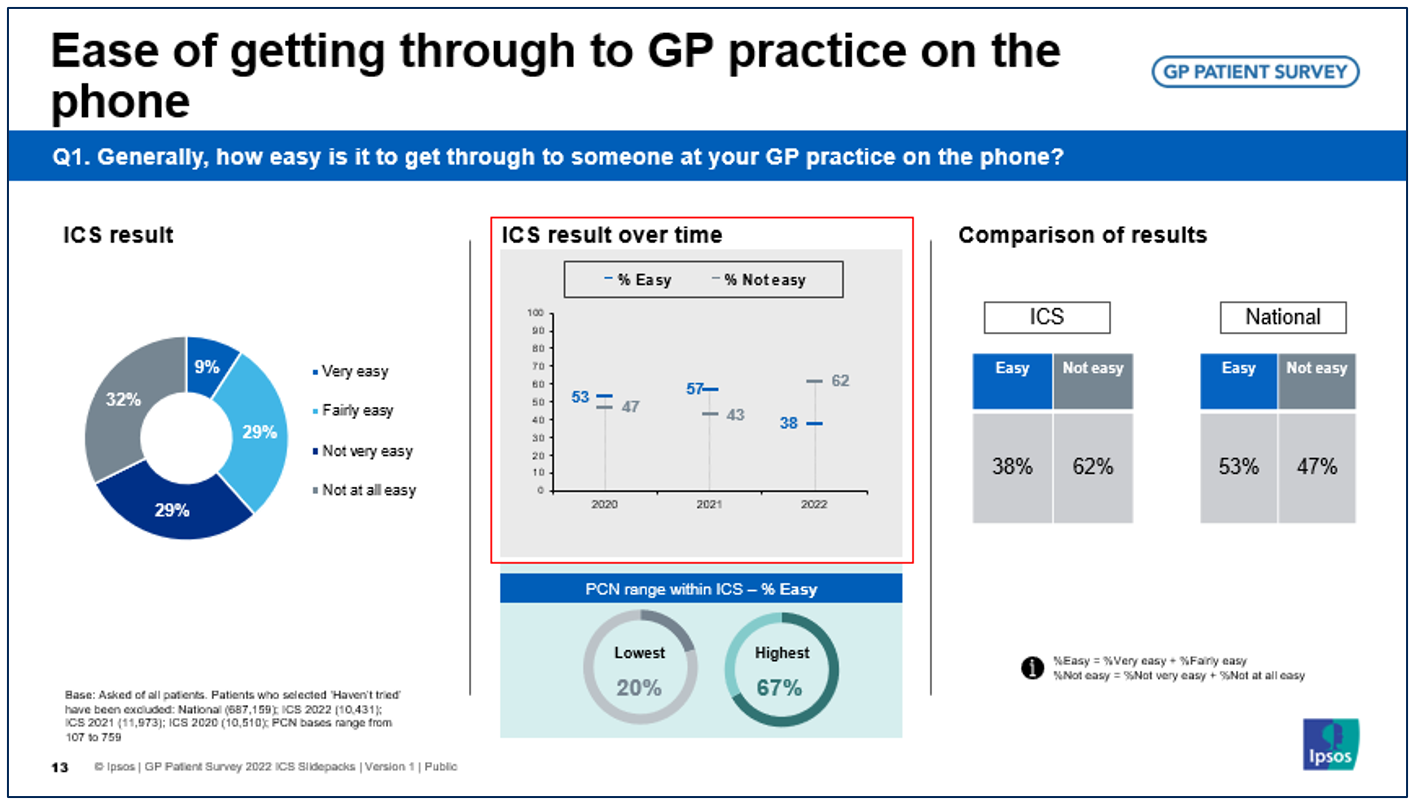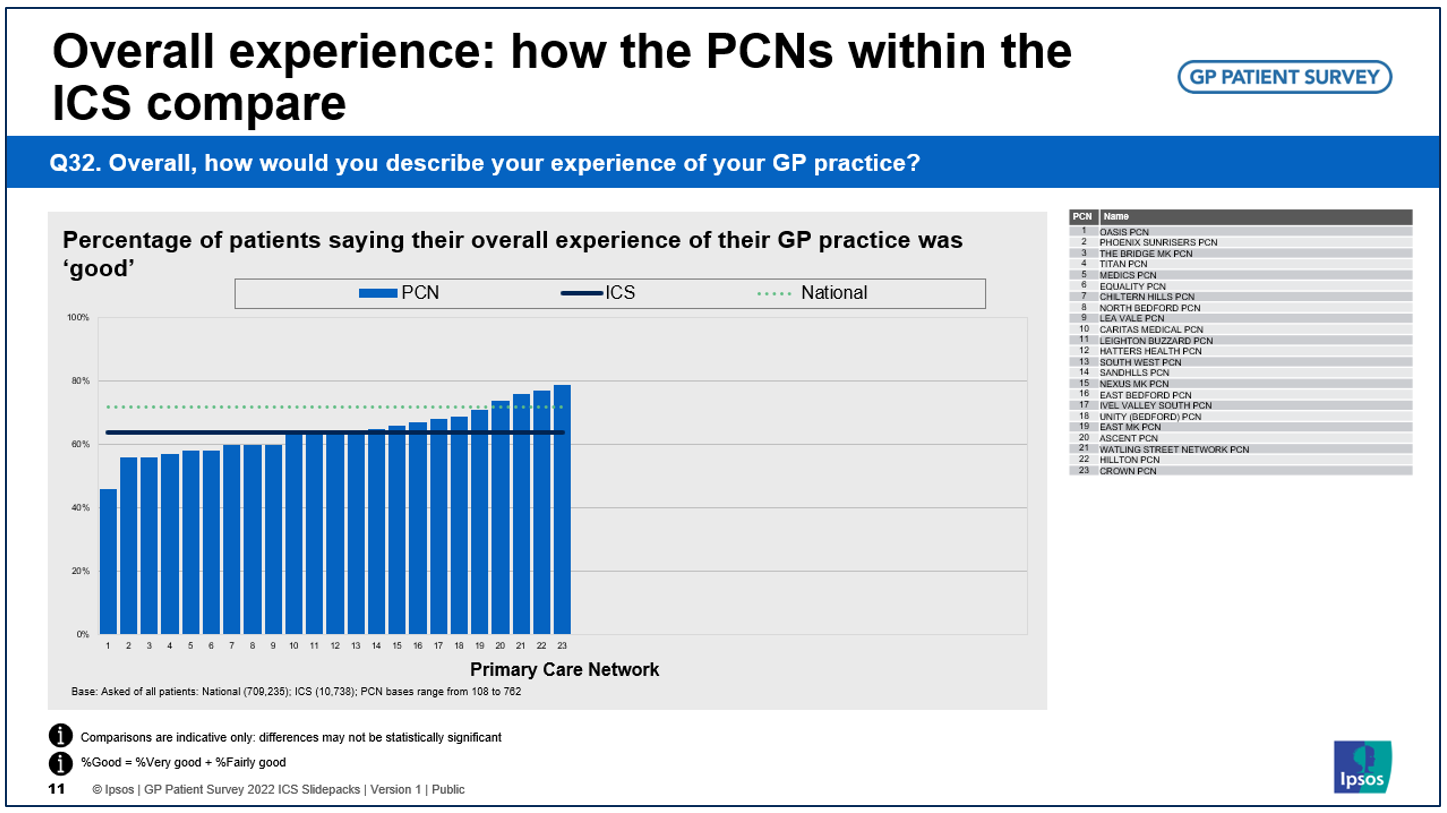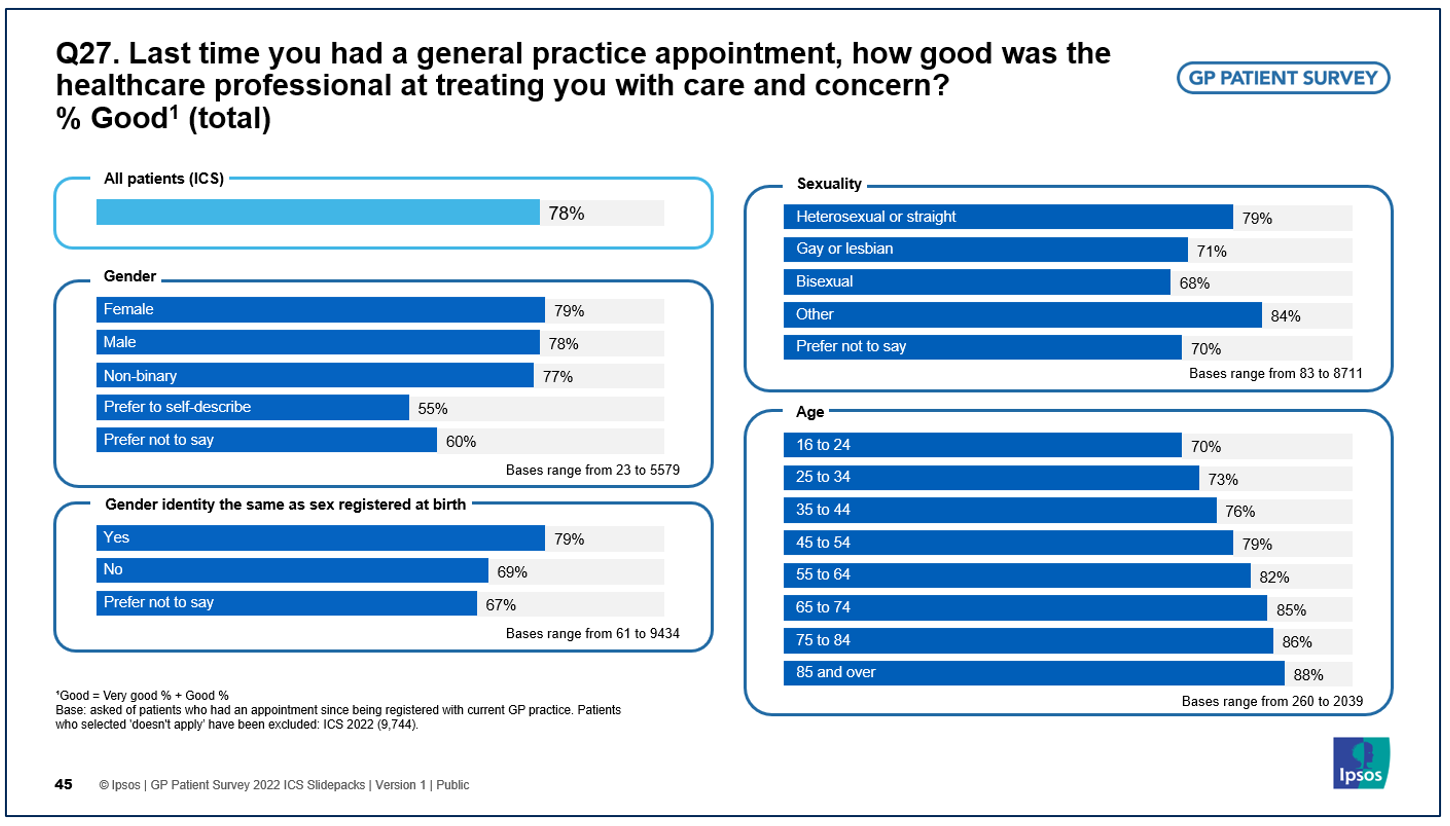Amun Rehsi gives an overview of the new ICS slide packs using GPPS 2022 data
The 2022 GP Patient Survey (GPPS) results have now been published. This year, we have created individual Integrated Care System (ICS) slide packs which are available on our website. The slide packs present data for key questions from the 2022 GPPS for each ICS and provide valuable and useful insights by including trend data, PCN (primary care network) comparisons and benchmarking.
The data presented in the ICS slide packs can be used to help improve GP services in several ways. In this blog, findings from the Bedfordshire, Luton, and Milton Keynes ICS slide pack have been used to demonstrate this.
Comparing ICS and national results
As shown below, the slide packs present comparisons of ICS results against national level data for key questions. Comparing ICS results against national data allows benchmarking of an ICS’s performance. This can help to describe how the ICS is performing and provide potential areas for future improvement.

Analysing ICS trends over time
The slide packs also provide trend data, where available, demonstrating ICS performance over the past three years. This provides a sense of direction of the ICS’s performance.

Variation in Primary Care Networks’ (PCN) results within the ICS
The slide packs also provide a breakdown of PCN results within the ICS. This data can be used to identify examples of good practice, as well as identifying which PCNs may need additional support, for example, to improve or based on the population they are serving.

Demographic breakdowns
GPPS data can also be used to compare experiences among different patient groups, providing important insights into health inequalities. This year, a breakdown of the results by a selection of key demographic variables has been included in the ICS slide packs for one question (Last time you had a general practice appointment, how good was the healthcare professional at treating you with care and concern?). The key demographic variables include: gender, gender identity, sexuality, age, Indices of Multiple Deprivation (IMD) quintiles, disability status, long-term conditions, religion, ethnicity, and carer status.
This data provides important context for reported patient experience. For example, practices in areas of higher deprivation, or with aging populations, are likely to face more serious challenges in serving their patients.

Feedback
We are always looking for ways to improve the data we share, so if you have any feedback about these slide packs, please get in touch with the GP Patient Survey team at GPPatientSurvey@ipsos.com.
Technical information
The survey received 719,137 responses from patients aged 16 years or over who are registered with a GP practice in England. The survey has a national response rate of 29.1%.
Minor changes were made to the questionnaire in 2022 to ensure that it continued to reflect how primary care services are delivered and how patients experience them. This followed more substantial changes in 2021. Where questions have changed significantly in 2022 or 2021, comparisons have not been made to previous years. Further methodological information is available in the Technical Annex.
Please note that fieldwork for the survey (the period in which surveys are sent and returned) is undertaken from approximately January to March in each respective year. The 2022 survey was completed from 10 January through to 11 April 2022.
More information
For more information, please contact the GP Patient Survey team.
For more information about GPPS, visit the ‘About’ page on the survey website.



